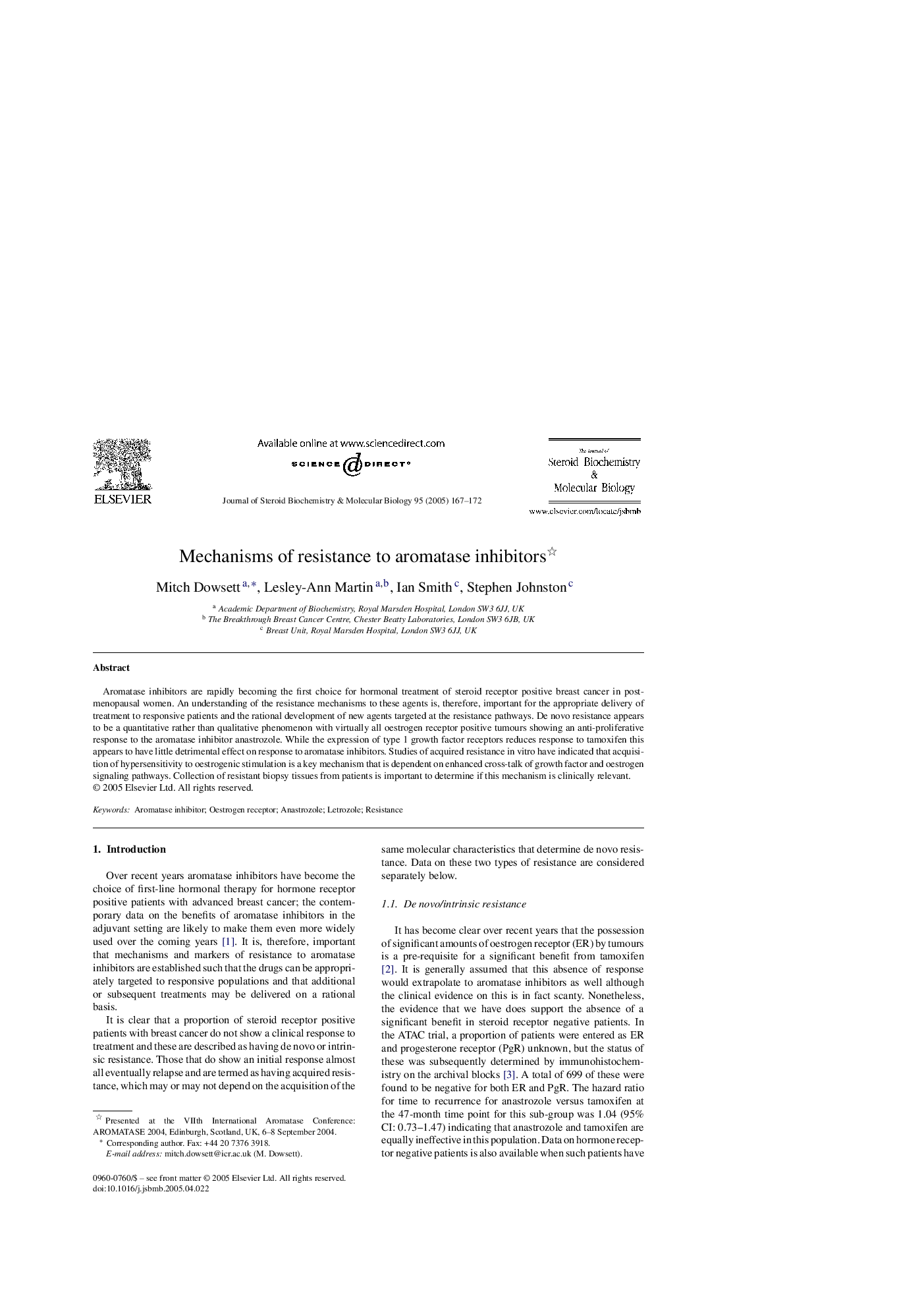| Article ID | Journal | Published Year | Pages | File Type |
|---|---|---|---|---|
| 9892138 | The Journal of Steroid Biochemistry and Molecular Biology | 2005 | 6 Pages |
Abstract
Aromatase inhibitors are rapidly becoming the first choice for hormonal treatment of steroid receptor positive breast cancer in postmenopausal women. An understanding of the resistance mechanisms to these agents is, therefore, important for the appropriate delivery of treatment to responsive patients and the rational development of new agents targeted at the resistance pathways. De novo resistance appears to be a quantitative rather than qualitative phenomenon with virtually all oestrogen receptor positive tumours showing an anti-proliferative response to the aromatase inhibitor anastrozole. While the expression of type 1 growth factor receptors reduces response to tamoxifen this appears to have little detrimental effect on response to aromatase inhibitors. Studies of acquired resistance in vitro have indicated that acquisition of hypersensitivity to oestrogenic stimulation is a key mechanism that is dependent on enhanced cross-talk of growth factor and oestrogen signaling pathways. Collection of resistant biopsy tissues from patients is important to determine if this mechanism is clinically relevant.
Related Topics
Life Sciences
Biochemistry, Genetics and Molecular Biology
Biochemistry
Authors
Mitch Dowsett, Lesley-Ann Martin, Ian Smith, Stephen Johnston,
